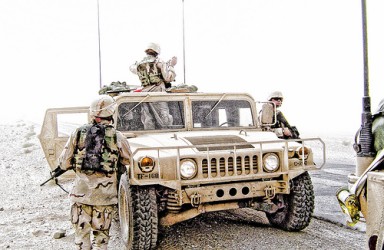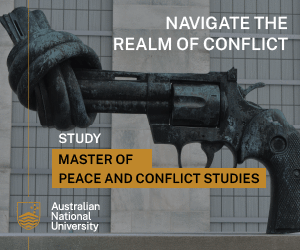Is Nuclear Strategy a Contradiction in Terms?
For the majority of states, offensive nuclear strategy is simply not feasible, and it is unlikely rogue states would implement a first-strike strategy due to fear of retaliation.
Deconstructing Justifications for Invading Iraq
The US invaded Iraq to strengthen and expand its ability to exert hegemony over this key regional area, to control Iraq’s oil reserves, and to liberalize Iraq’s economy.
World Oil Market: Prices and Crises
No commodity has such importance for the future of world politics as oil. From a largely commercial activity, international trade in oil has become a source of east-west tensions, north-south negotiations, and considerable disagreement within the West.
Is There an Ethical Way of Remembering War?
Through analysing the Japanese memory of WWII it is clear that ethics are susceptible to unconscious limitations, often leading to denial and forgetfulness of the past.
Influences that Shaped Taliban Ideology
Due to unique geo-political circumstances surrounding its emergence, the Taliban’s brand of Islam is unique, combining conservative aspects of the Deobandi and Wahhabi schools.
Australia’s Immigration Policy Following the Second World War
Government initiatives were aimed at using immigration as a means of not only building the population, but also improving the economic state of the nation simultaneously.
An Appraisal of Robert Keohane: Neoliberalism and Liberal Institutionalism
Recognising the existence of an anarchic society of states but also an importance for reaching collective goals is one of the key tenets of neoliberal institutionalism.
Is the Security Dilemma Still Relevant in International Relations?
After the Cold War ended many people felt that there was a shift in the way that international relations occurred and that principles such as the security dilemma were no longer relevant.
Private Military Companies in the Contemporary Security Context
The new security context presented by PMCs challenges the traditional Weberian concept of the state as the sole depository of legitimate violence.
Would Marx Be a Vegetarian?
When every single person in the world stops eating meat and turns to fruits, vegetables, and grains – developing countries will unite. Agricultural trade will take a drastic shift between industrialized and developing countries.











